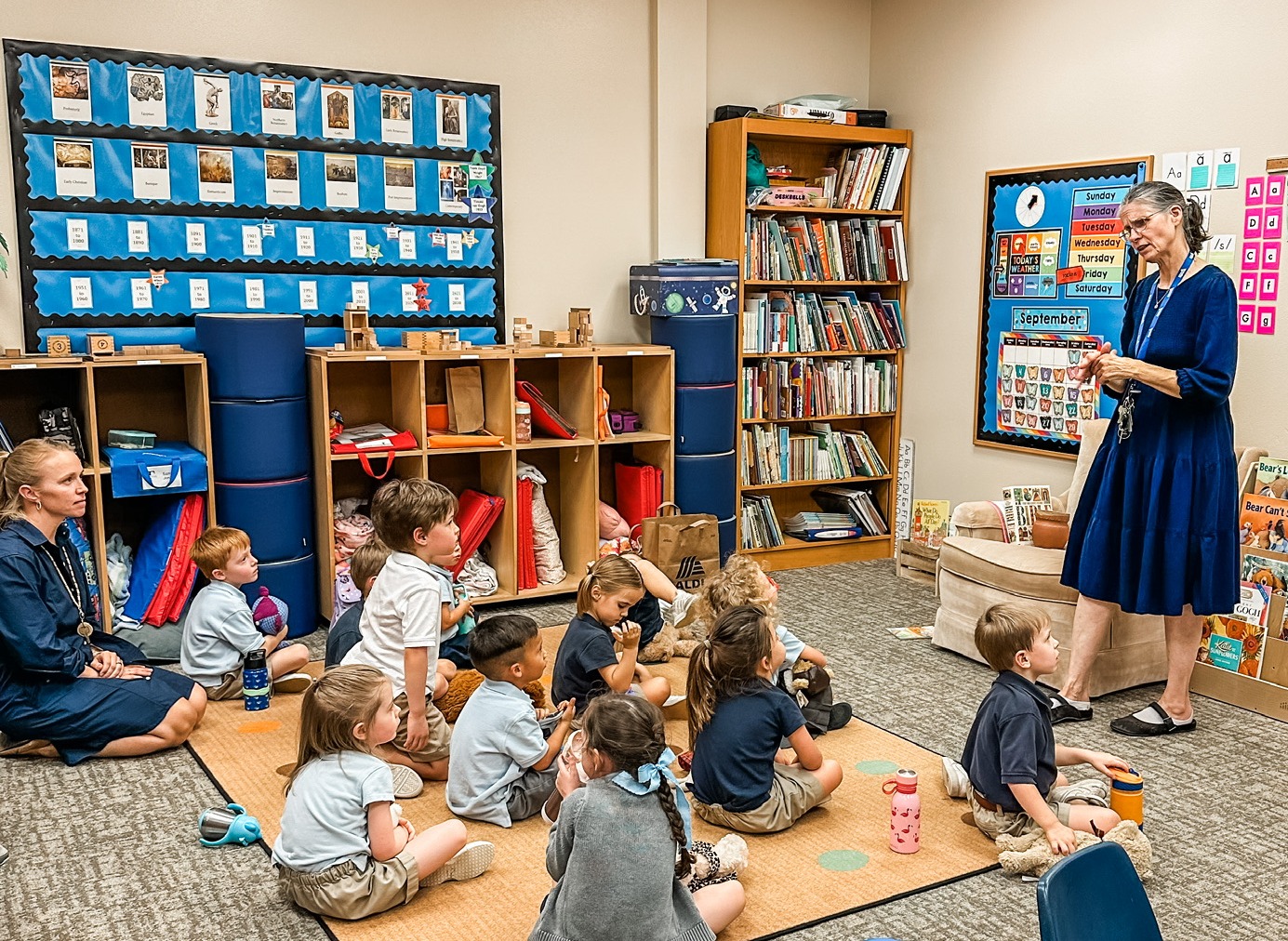During the past few weeks, I have been highlighting some reasons families have left Trinitas, which seems like a dangerous undertaking. I’m not trying to scare people away, of course. My reason for doing this short series is that I want to communicate who Trinitas is to families who want the sort of education we’re offering. One way to do that is by thrusting into the spotlight some of the school’s characteristics that have been breaking points for families in the past. This is the last installment.
Topics: Blog Posts, School Life, Parenting, Classical Education, Christian Living, Parent Involvement, Virtue
Excellence vs Perfectionism: Helping Our Students Avoid Idolatry
To graduate students who can think clearly, discern wisely, and articulate winsomely classical, Christian schools must have high standards. This means that there will be a striving for excellence in all that we do. With this, we need to be very careful to pay attention to the temptations that come along with this kind of atmosphere. One such temptation that our students may face is setting up idols of perfectionism and putting their worth in their achievements.
Topics: Blog Posts, Parenting, Classical Education, Christian Education, True Education, Social Issues, Grades, Virtue
How to Avoid a Culture of Disrespect (and Other Shameful Maladies)
I often mention a particular Proverb I think Christian people have begun to neglect. It is Proverbs 29:15, and it goes like this, “The rod and rebuke give wisdom, but a child left to himself brings shame to his mother.” As Christians, we have something the rest of the world does not have in the same way: the Holy Spirit. Part of the work of the Spirit in our lives is to illuminate God’s word for us so that we have belief and understanding that is not available to those who do not have the same indwelling Holy Spirit. So when Christians read in the Bible, “The rod and rebuke give wisdom, but a child left to himself brings shame to his mother,” we can know that it is true.
Topics: Blog Posts, Parenting, Christian Living
Last week, we shared ten practical tips for achieving enduring success and experiencing the wonderful fruit of classical Christian education at Trinitas, This week, we have ten MORE practical tips we've assembled from our teachers which we hope will benefit your family.
Topics: Blog Posts, School Life, Parenting, Classical Education, Scripture, Christian Education, True Education, Parent Involvement, Reading, Homework, Truth, Goodness, and Beauty, Virtue
The best things in life are often also the hardest things in life, and classical Christian education is no exception to this truism. To help Trinitas parents and students achieve enduring success at Trinitas and experience the wonderful fruit of classical Christian education, we've assembled these ten practical tips for success at Trinitas taken directly from our teachers. Simple, practical, but sometimes a bit pointed, we hope these steps are received in the spirit they are offered and are helpful to you.
Topics: Blog Posts, School Life, Parenting, Classical Education, Scripture, Christian Education, Christian Living, Parent Involvement, Homework, Truth, Goodness, and Beauty, Virtue
God has created the world to work in a very ordered way. He is a God of order. He brought order out of nothing—out of chaos if you prefer—to establish a peaceful habitation for humankind. Adam’s job was to maintain God’s order in the garden. When he failed at that, he was cast out of the garden, and the job got a lot harder; nonetheless, as his descendants we inherited the job. God’s people are to maintain order, a God-like order, of God’s creation. It is a hard job. Just look around at the mess we must bring to order. But we were made for it.
Topics: Blog Posts, Parenting, Christian Education, Parent Involvement
When children and God come up in the same conversation, few Bible verses get quoted more frequently than Proverbs 22:6, which reads, “Train up a child in the way he should go, and when he is old he will not depart from it.” Interpretations for this nugget of godly wisdom vary. If one considers the verse alongside the command to parents in Deuteronomy 6:4-9 to diligently teach the ways of God to children, and alongside the command to children in Exodus 20:12 (and repeated in Ephesians 6:1-3) to honor and obey parents, then Proverbs 22:6 becomes clearer. We can see that it fits into a larger context for the way God would have us approach child rearing: we are to intentionally, purposefully shape our children’s thoughts and actions toward God.
Topics: Blog Posts, Parenting, Christian Education, Virtue
One of the books that all new Trinitas parents are required to read in their first year at Trinitas is Teach Them Diligently. Through the years this book has informed the school’s policy and practice about correction and discipline in the classroom. It's a helpful guide that many veteran parents and even our classroom teachers turn to for help in discipling children.
Topics: Blog Posts, Parenting, Christian Education

-1.png)








